Stung by the recent spate of corruption scandals, and the slow pace of its e-governance reforms, the centre is considering a bold sunset law for all paper transactions between itself and citizens.
Stung by the recent spate of corruption scandals, and the slow pace of its e-governance reforms, the centre is considering a bold sunset law for all paper transactions between itself and citizens.
The Rs40,000 crore e-governance plan aims to eliminate corruption and rein in babus by keeping citizens out of government offices.
The online system, in which citizens will have to request all government services only through the Internet, will also have software that will raise an alarm if a bureaucrat does not provide a given service within the stipulated time.
The two aspects — elimination of physical visits by citizens to government offices, and software-based monitoring of delays and service quality, are expected to cut down bureaucratic corruption and harassment.
However, Shankar Aggarwal, the joint secretary at the department of IT, who has been pushing the e-governance initiative, pointed out that progress in the reforms has been slower than expected.
“During the last [apex committee] meeting, it was agreed that we will make it mandatory for all government departments to provide services only in the electronic format from a specific cut-off date,” Aggarwal said.
Once the switch is made, he said, citizens will be able to access government services either by logging in from their homes or by going to internet cafes or special e-kiosks in rural areas. The government will also take steps to give legal validity and recognition to digital signatures that will replace government seals and stamps.
The new law will borrow from similar anti-corruption laws enacted or contemplated by various state governments. Madhya Pradesh, for example, has imposed a time-limit of 3 days for the delivery of 25 state services like the issue of a domicile certificate. Any delay in the issue of certificates — monitored electronically — results in a fine of Rs250 per day imposed on the bureaucrat responsible.
MP, however, has not yet mandated citizens to file their requests through the Internet and continues to accept them on paper. But this step is being contemplated by Maharashtra, which is about to introduce a bill to force all government departments, local bodies and institutions to have ‘electronic delivery’ of all their services within a cut-off date. “We hope to present the bill in the state legislature by March,” said Vijayalakshmi Prasanna, Director, IT, government of Maharashtra.
The Centre’s move to force the pace of reform has come in the wake of the ‘go slow’ attitude of various state governments and local bodies. While private companies and individuals have established an estimated 80,000 Internet-enabled kiosks — called common service centres or CSCs — across the country to deliver government services, the services themselves have largely been a no-show.
The worst performers have been state and local government bodies, while some of the Central ministries — such as Corporate Affairs and Finance — have had e-services running for many years now.
While all the states were supposed to have digitised all their data and put them on ‘state data centres’ by last year, only 15 currently have the data-centre — the repository of all government records without which no services can be launched.
The state-wide high-speed data networks that were supposed to connect the data centres to government offices and to the retail kiosks are operational only in 23 of the 33 states.
With the back-end not ready, most state government and local government departments have not launched the electronic version of their services. This in turn has hit the private companies and individuals who opened the kiosks or Common Service Centres (CSCs) —forcing many of them to become photocopying shops and internet cafes or shut shop.
BSNL, which was paid Rs880 crore to provide broadband connectivity to the CSCs by September last year, is yet to reach many of the kiosks, forcing the latter to acquire connectivity at high rates.
To fix the problems, even as it forces the pace of digitization through a sunset law, Aggarwal said the government will also provide Rs2,000 per month as a subsidy to all the CSCs.
The subsidy, however, will only be available to the 150,000 kiosks about to be set up and not to the 100,000 that were covered in the first phase, he added. Out of the Rs2,000, Rs500 will be provided directly to the individual running the centre and not to the private company or contractor responsible for the zone.
The government will also provide the kiosks with solar panels to ensure uninterrupted supply of power, added Aggarwal, at a national review meeting of the e-governance rollout in the capital.
Some of the state government representatives took strong objection to plans by panchayats and central government ministries to open parallel kiosks to deliver their services.
“The Centre should take a final decision that the CSC is the interface between the government and the citizen. All digital services should only be given through CSCs [and not other kiosks,]” said Savitur Prasad, secretary of IT for Delhi government.
![submenu-img]() Meet IIT-JEE topper with AIR 1, son of government school teachers, he went on to pursue...
Meet IIT-JEE topper with AIR 1, son of government school teachers, he went on to pursue...![submenu-img]() Salman Khan house firing case: One more Lawrence Bishnoi gang member arrested by Mumbai Police
Salman Khan house firing case: One more Lawrence Bishnoi gang member arrested by Mumbai Police ![submenu-img]() Mukesh Ambani to host Anant-Radhika's second pre-wedding function: Trip to start from Italy with 800 guests and end in..
Mukesh Ambani to host Anant-Radhika's second pre-wedding function: Trip to start from Italy with 800 guests and end in..![submenu-img]() Driver caught on camera running over female toll plaza staff on Delhi-Meerut expressway, watch video
Driver caught on camera running over female toll plaza staff on Delhi-Meerut expressway, watch video![submenu-img]() 'If you come and do something here...': EAM S Jaishankar on India's 'message' against terrorism
'If you come and do something here...': EAM S Jaishankar on India's 'message' against terrorism![submenu-img]() Meet IIT-JEE topper with AIR 1, son of government school teachers, he went on to pursue...
Meet IIT-JEE topper with AIR 1, son of government school teachers, he went on to pursue...![submenu-img]() TN 11th Result 2024: TNDGE Tamil Nadu HSE (+1) result declared, direct link here
TN 11th Result 2024: TNDGE Tamil Nadu HSE (+1) result declared, direct link here![submenu-img]() Meet doctor who cracked UPSC exam with AIR 9 but didn’t became IAS due to…
Meet doctor who cracked UPSC exam with AIR 9 but didn’t became IAS due to…![submenu-img]() TN 11th Result 2024 to be declared today; know how to check
TN 11th Result 2024 to be declared today; know how to check![submenu-img]() Meet man who worked as coolie, studied from railway's WiFi, then cracked UPSC exam to become IAS, secured AIR...
Meet man who worked as coolie, studied from railway's WiFi, then cracked UPSC exam to become IAS, secured AIR...![submenu-img]() DNA Verified: Is CAA an anti-Muslim law? Centre terms news report as 'misleading'
DNA Verified: Is CAA an anti-Muslim law? Centre terms news report as 'misleading'![submenu-img]() DNA Verified: Lok Sabha Elections 2024 to be held on April 19? Know truth behind viral message
DNA Verified: Lok Sabha Elections 2024 to be held on April 19? Know truth behind viral message![submenu-img]() DNA Verified: Modi govt giving students free laptops under 'One Student One Laptop' scheme? Know truth here
DNA Verified: Modi govt giving students free laptops under 'One Student One Laptop' scheme? Know truth here![submenu-img]() DNA Verified: Shah Rukh Khan denies reports of his role in release of India's naval officers from Qatar
DNA Verified: Shah Rukh Khan denies reports of his role in release of India's naval officers from Qatar![submenu-img]() DNA Verified: Is govt providing Rs 1.6 lakh benefit to girls under PM Ladli Laxmi Yojana? Know truth
DNA Verified: Is govt providing Rs 1.6 lakh benefit to girls under PM Ladli Laxmi Yojana? Know truth![submenu-img]() Remember Harsh Lunia? Just Mohabbat child star, here's how former actor looks now, his wife is Bollywood's popular...
Remember Harsh Lunia? Just Mohabbat child star, here's how former actor looks now, his wife is Bollywood's popular...![submenu-img]() Mother's Day 2024: Bollywood supermoms who balance motherhood, acting, and run multi-crore businesses
Mother's Day 2024: Bollywood supermoms who balance motherhood, acting, and run multi-crore businesses![submenu-img]() Rocky Aur Rani's Golu aka Anjali Anand shocks fans with drastic weight loss without gym, says fitness secret is...
Rocky Aur Rani's Golu aka Anjali Anand shocks fans with drastic weight loss without gym, says fitness secret is...![submenu-img]() In pics: Ram Charan gets mobbed by fans during his visit to Pithapuram for ‘indirect campaign’ for uncle Pawan Kalyan
In pics: Ram Charan gets mobbed by fans during his visit to Pithapuram for ‘indirect campaign’ for uncle Pawan Kalyan![submenu-img]() Streaming This Week: Yodha, Aavesham, Murder In Mahim, Undekhi season 3, latest OTT releases to binge-watch
Streaming This Week: Yodha, Aavesham, Murder In Mahim, Undekhi season 3, latest OTT releases to binge-watch![submenu-img]() Haryana Political Crisis: Will 3 independent MLAs support withdrawal impact the present Nayab Saini led-BJP government?
Haryana Political Crisis: Will 3 independent MLAs support withdrawal impact the present Nayab Saini led-BJP government?![submenu-img]() DNA Explainer: Why Harvey Weinstein's rape conviction was overturned, will beleaguered Hollywood mogul get out of jail?
DNA Explainer: Why Harvey Weinstein's rape conviction was overturned, will beleaguered Hollywood mogul get out of jail?![submenu-img]() What is inheritance tax?
What is inheritance tax?![submenu-img]() DNA Explainer: What is cloud seeding which is blamed for wreaking havoc in Dubai?
DNA Explainer: What is cloud seeding which is blamed for wreaking havoc in Dubai?![submenu-img]() DNA Explainer: What is Israel's Arrow-3 defence system used to intercept Iran's missile attack?
DNA Explainer: What is Israel's Arrow-3 defence system used to intercept Iran's missile attack?![submenu-img]() Salman Khan house firing case: One more Lawrence Bishnoi gang member arrested by Mumbai Police
Salman Khan house firing case: One more Lawrence Bishnoi gang member arrested by Mumbai Police ![submenu-img]() Meet actress, who got rejected for her looks, had no hit for 15 years; later beat Alia, Deepika, Katrina at box office
Meet actress, who got rejected for her looks, had no hit for 15 years; later beat Alia, Deepika, Katrina at box office![submenu-img]() Abdu Rozik breaks silence on his wedding announcement being called ‘publicity stunt’: ‘The whole world is…’
Abdu Rozik breaks silence on his wedding announcement being called ‘publicity stunt’: ‘The whole world is…’![submenu-img]() Meet actress who made debut with Salman Khan, had super flop career, then got TB, now lives in chawl, runs..
Meet actress who made debut with Salman Khan, had super flop career, then got TB, now lives in chawl, runs..![submenu-img]() Meet actress who worked with Naseeruddin Shah, sister of popular models, is now getting trolled on social media for..
Meet actress who worked with Naseeruddin Shah, sister of popular models, is now getting trolled on social media for..![submenu-img]() Driver caught on camera running over female toll plaza staff on Delhi-Meerut expressway, watch video
Driver caught on camera running over female toll plaza staff on Delhi-Meerut expressway, watch video![submenu-img]() Delhi man takes 200 flights in 110 days, steals lakhs worth of jewelry from passengers
Delhi man takes 200 flights in 110 days, steals lakhs worth of jewelry from passengers![submenu-img]() Viral video: Man makes paratha with 'diesel', internet reacts
Viral video: Man makes paratha with 'diesel', internet reacts![submenu-img]() Viral video of 'black jalebi' leaves internet in shock; netizens say 'hey bhagwan...'
Viral video of 'black jalebi' leaves internet in shock; netizens say 'hey bhagwan...'![submenu-img]() Real-life Bambi and Thumper? Adorable deer and rabbit video melts hearts online
Real-life Bambi and Thumper? Adorable deer and rabbit video melts hearts online




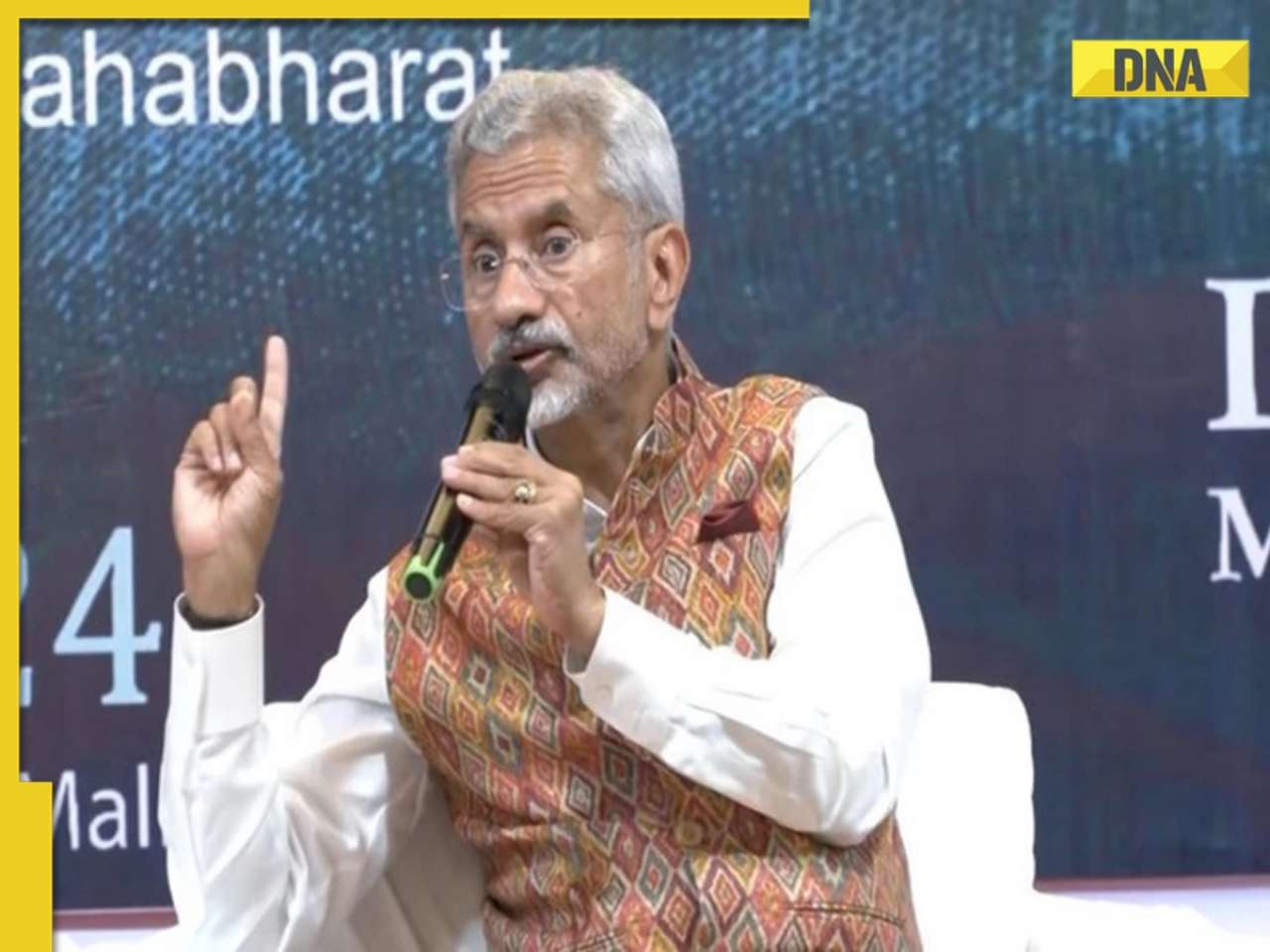




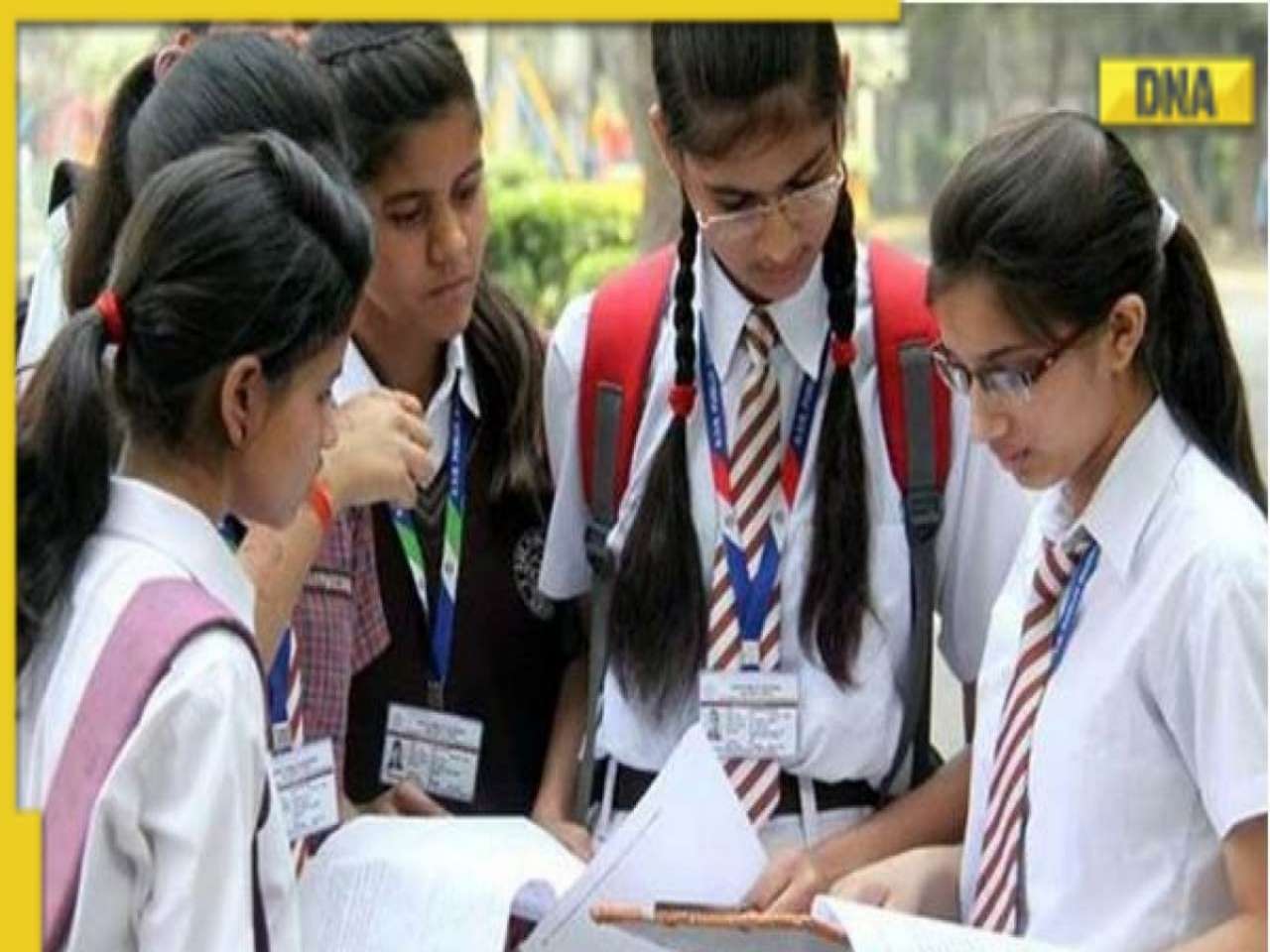

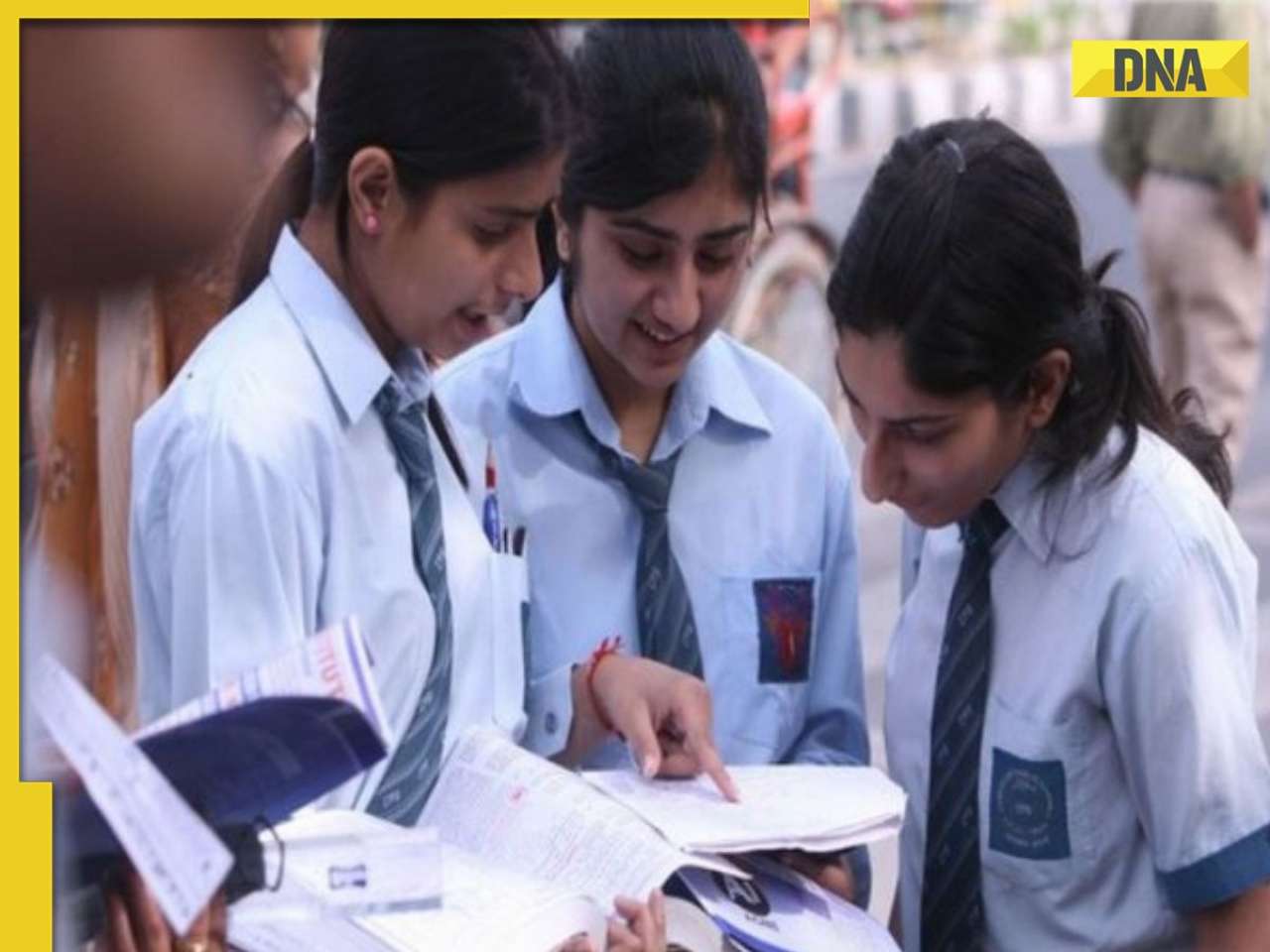
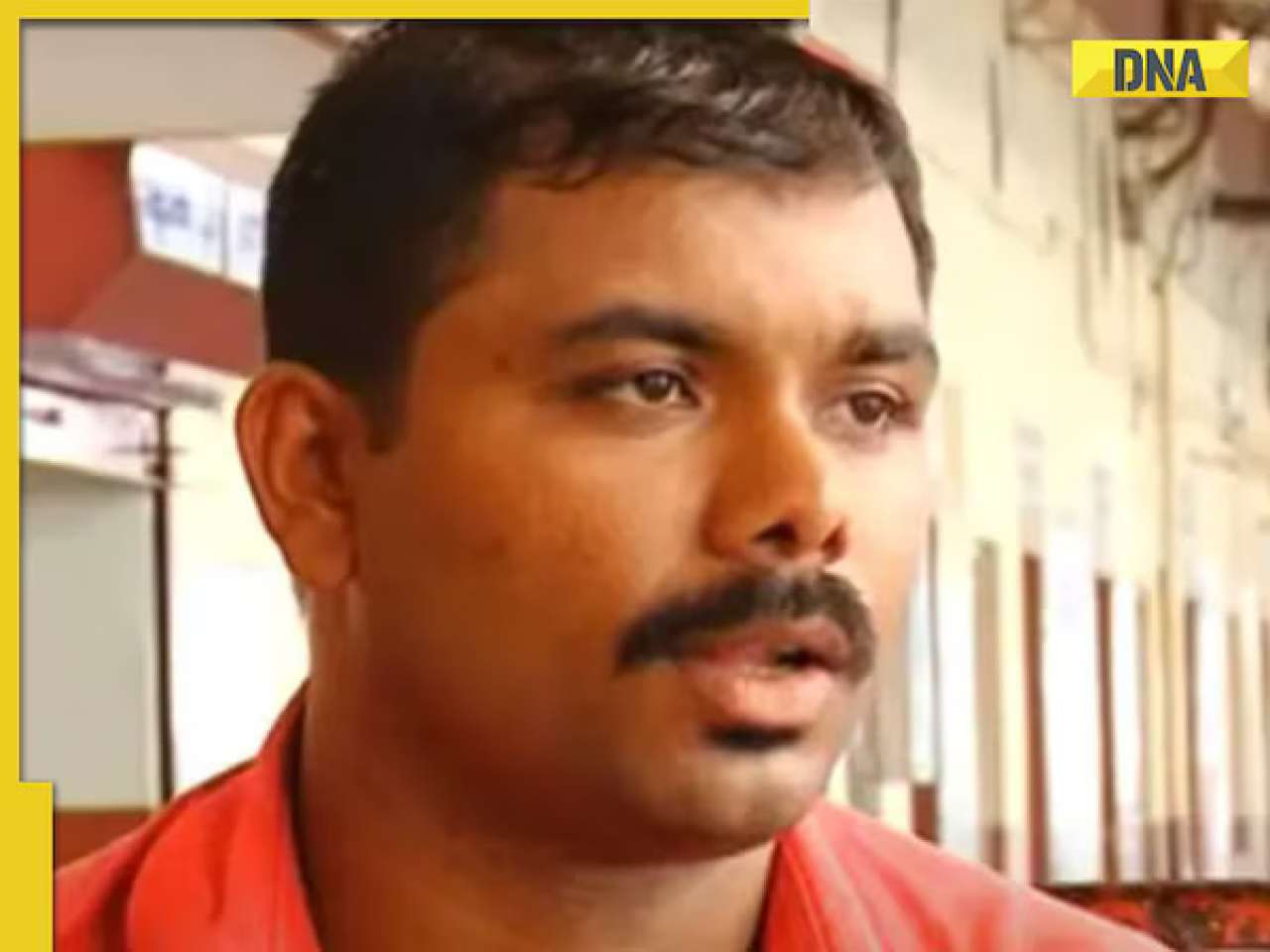





























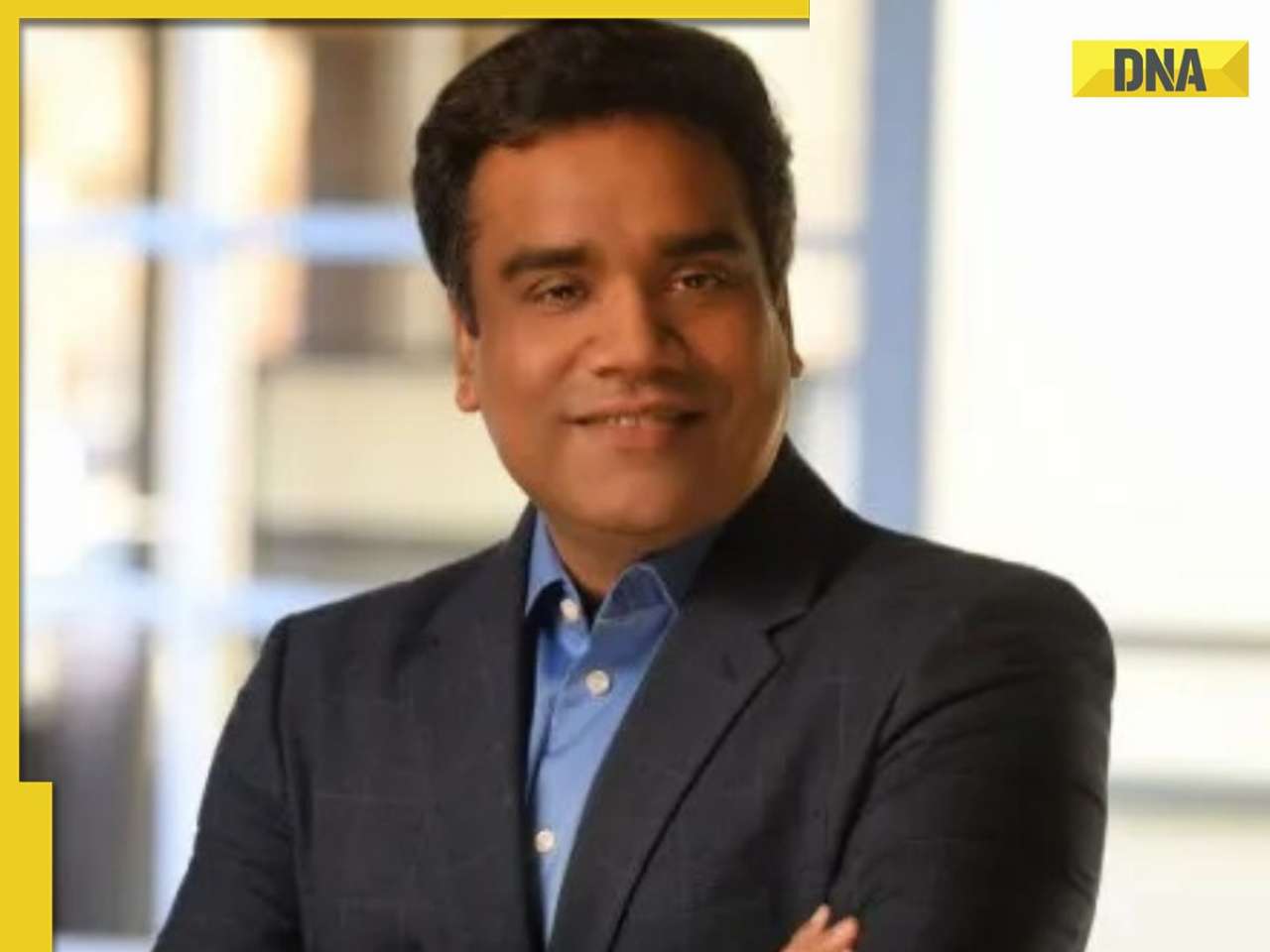




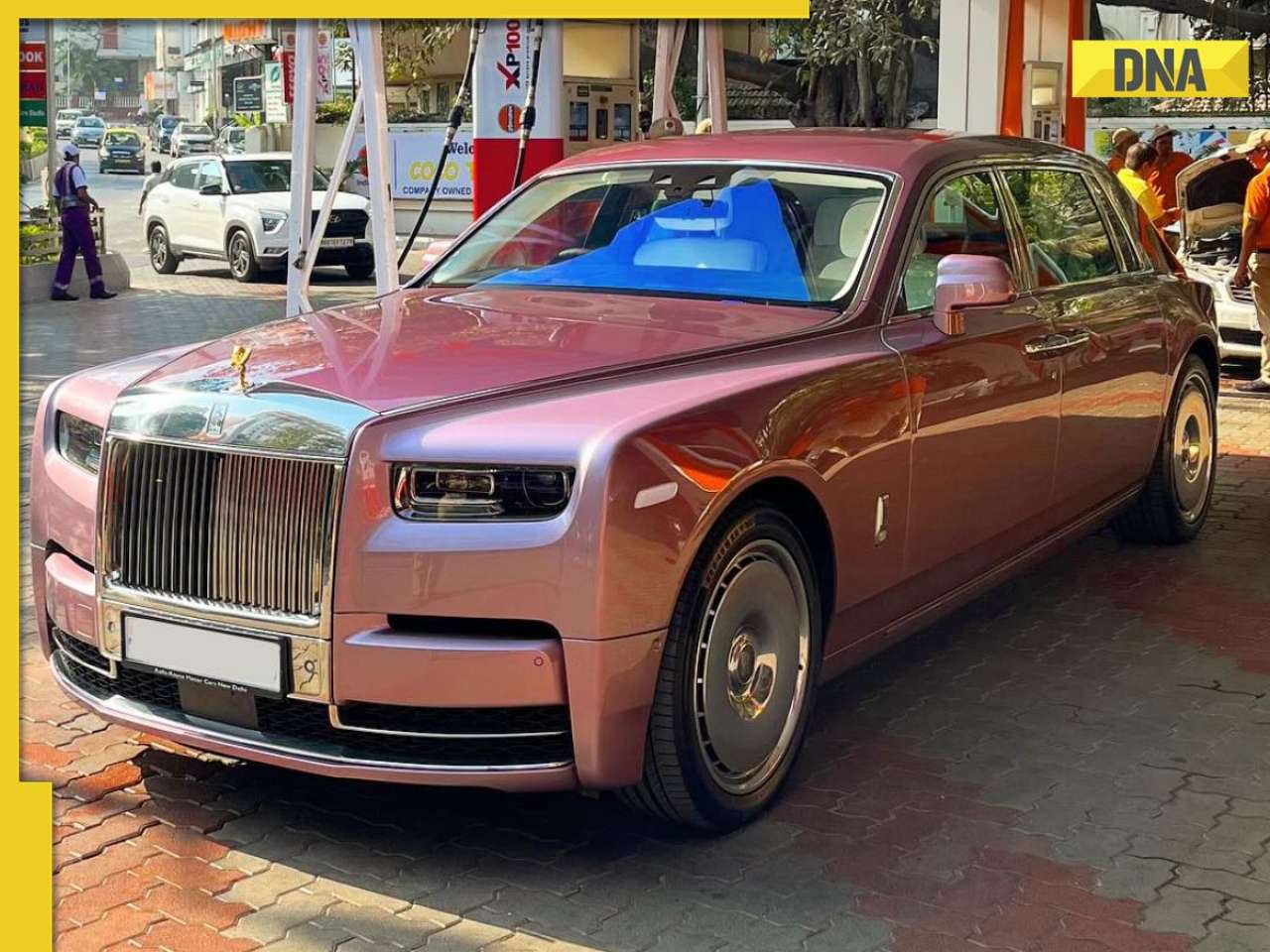






)
)
)
)
)
)